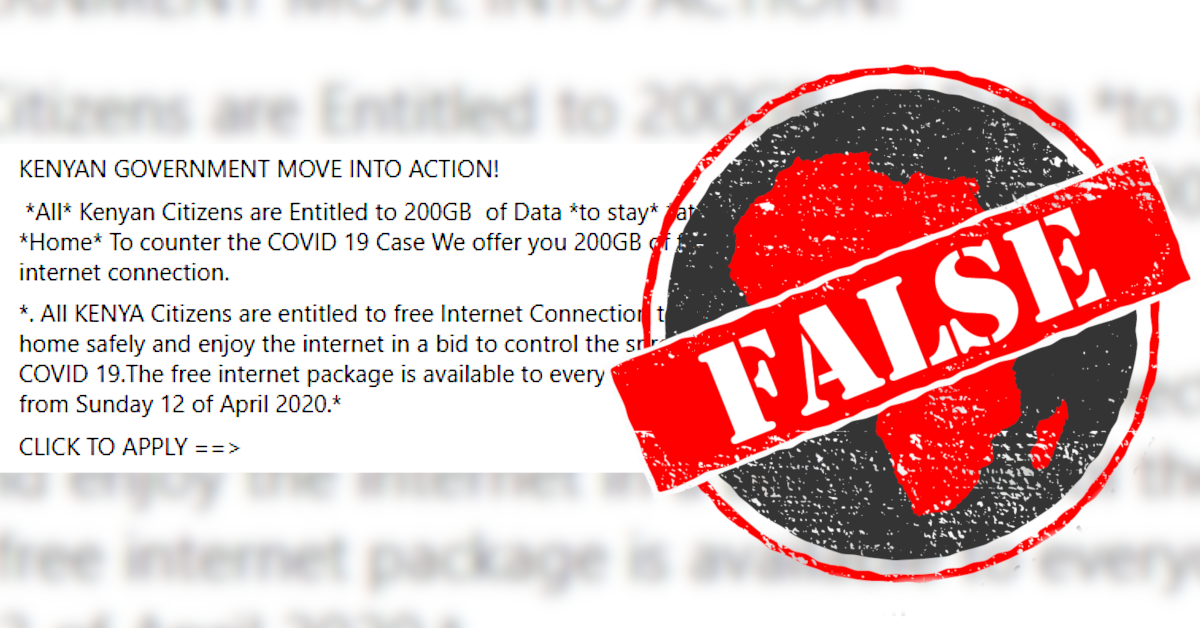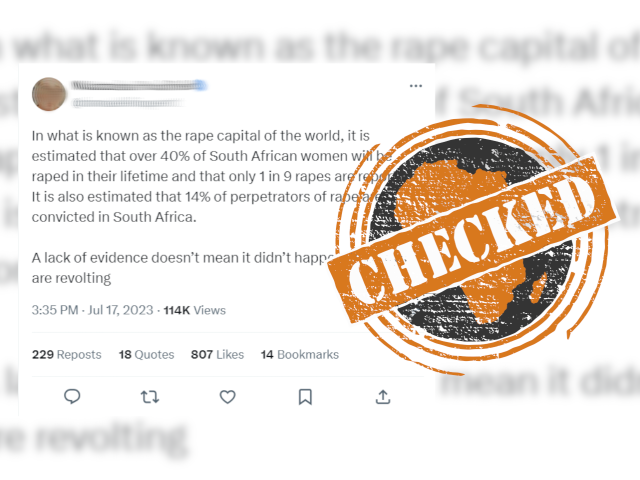Kenya’s government is giving every citizen 200 GB of data to encourage them to stay at home during the coronavirus outbreak, claims a message doing the rounds on Facebook and WhatsApp.
“Kenyan government moves into action. All Kenyan citizens are entitled to 200GB of data to stay at home to counter the Covid-19 case. We offer you 200GB of free internet connection.” it reads.
“All Kenya citizens are entitled to a free internet connection to stay at home safely and enjoy the internet in a bid to control the spread of Covid-19. The free internet package is available to everyone starting from Sunday 12 of April 2020.”
It then invites users to visit a website to apply for the free data.

But Kenya’s Directorate of Criminal Investigations has warned that the message is a scam.
“Members of the public are hereby warned that criminals are using the Covid-19 pandemic to scam them through circulation of phishing emails purporting to sell non-existent items & messages that are accompanied by links that purport to offer free goodies like data bundles, money, airtime among other things,” the DCI posted on its Facebook page.
“Such links have largely been found to be infected with malware that triggers mining of personal information, passwords, photos, contacts among other valuables that are subsequently used to extort, for cyber bullying, stealing of finances among other ills.” – Dancan Bwire
“Kenyan government moves into action. All Kenyan citizens are entitled to 200GB of data to stay at home to counter the Covid-19 case. We offer you 200GB of free internet connection.” it reads.
“All Kenya citizens are entitled to a free internet connection to stay at home safely and enjoy the internet in a bid to control the spread of Covid-19. The free internet package is available to everyone starting from Sunday 12 of April 2020.”
It then invites users to visit a website to apply for the free data.

‘Cyber bullying, stealing of finances’
But Kenya’s Directorate of Criminal Investigations has warned that the message is a scam.
“Members of the public are hereby warned that criminals are using the Covid-19 pandemic to scam them through circulation of phishing emails purporting to sell non-existent items & messages that are accompanied by links that purport to offer free goodies like data bundles, money, airtime among other things,” the DCI posted on its Facebook page.
“Such links have largely been found to be infected with malware that triggers mining of personal information, passwords, photos, contacts among other valuables that are subsequently used to extort, for cyber bullying, stealing of finances among other ills.” – Dancan Bwire
Republish our content for free
For publishers: what to do if your post is rated false
A fact-checker has rated your Facebook or Instagram post as “false”, “altered”, “partly false” or “missing context”. This could have serious consequences. What do you do?
Click on our guide for the steps you should follow.
Publishers guideAfrica Check teams up with Facebook
Africa Check is a partner in Meta's third-party fact-checking programme to help stop the spread of false information on social media.
The content we rate as “false” will be downgraded on Facebook and Instagram. This means fewer people will see it.
You can also help identify false information on Facebook. This guide explains how.





Add new comment